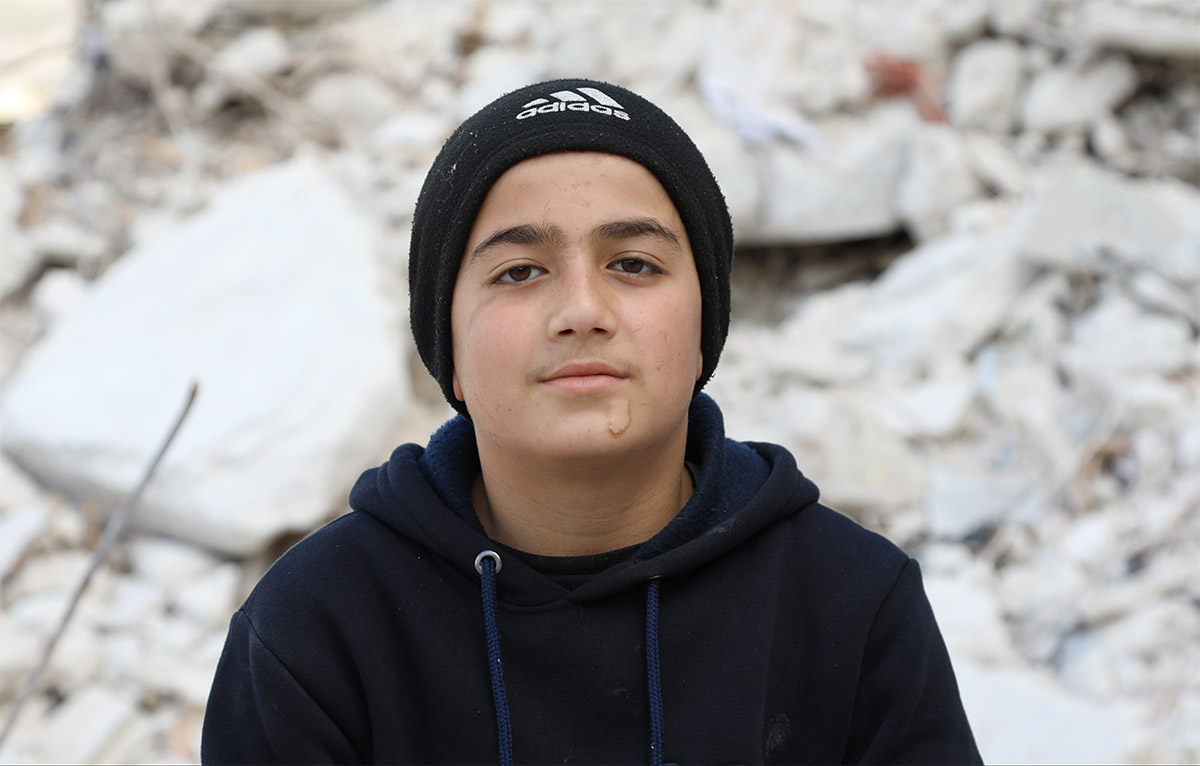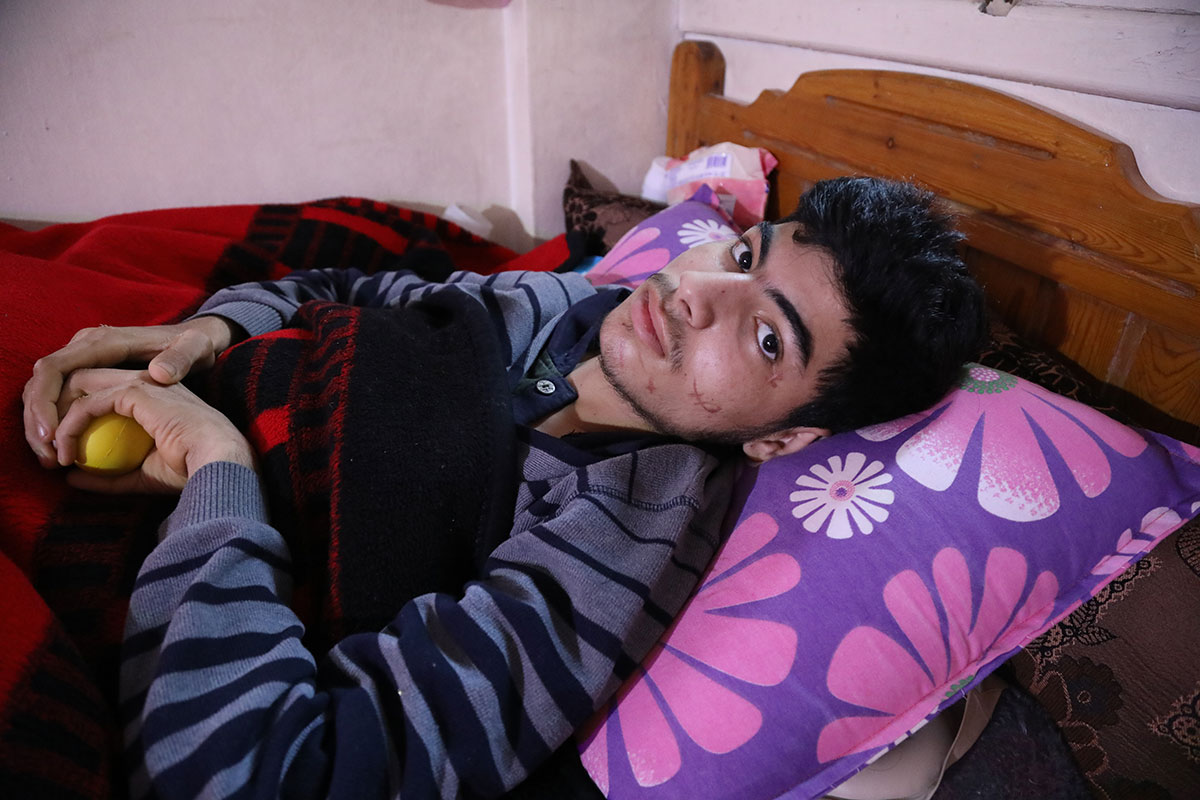 25 October 2023 – Thirteen-year-old Ahmad was asleep at home in Azmarin, a small village in north-west Syria, when the house began to shake violently in the middle of the night. The deadly earthquakes of 6 February 2023 had begun.
25 October 2023 – Thirteen-year-old Ahmad was asleep at home in Azmarin, a small village in north-west Syria, when the house began to shake violently in the middle of the night. The deadly earthquakes of 6 February 2023 had begun.
Moments later, the house had collapsed, burying Ahmad, his parents, sister and younger brother under the rubble. By the time rescuers reached the family, only Ahmad and his brother Omar were still alive. The boys were rushed to Al Rahma Hospital in Darkoush, where they were treated for their injuries. Once their health had stabilized, they were taken in by relatives.
The physical scars of the disaster may have healed, but the mental wounds run deep, particularly for Ahmad. He has told doctors he is “overwhelmed with sadness”. Ahmad often returns to visit Azmarin, seemingly still in disbelief over his loss, spending most of his time near the ruins of his former home and at the graves of his family members who perished.
Ahmad is being monitored by health professionals, with the support of the Syrian Expatriate Medical Association, and he receives special care, including protection and rehabilitation services. Doctors fear the devastating impact of the earthquake may have a more substantial impact on his future development.
 Like Ahmad and Omar, Abdul-Halim was also living in Azmarin at the time of the earthquake. His story is remarkably similar.
Like Ahmad and Omar, Abdul-Halim was also living in Azmarin at the time of the earthquake. His story is remarkably similar.
Abdul-Halim was also asleep at home when the earthquake struck, as were most of the people affected by the disaster. The house was reduced to rubble in seconds, burying the young boy and many members of his family, including his parents, 2 sisters, an uncle, and the uncle’s wife and cousin.
A rescue team found Abdul-Halim beneath the rubble right after the earthquake and took him to Al Rahma Hospital for emergency treatment. He was then moved to Azmarin Hospital to continue his rehabilitation, spending nearly 3 weeks there. Abdul-Halim later found out that he and his 12-year-old sister were the sole survivors of the earthquake among their household.
Abdul-Halim is unable to move and is currently bedridden. His sister suffered multiple bruises and a fractured right arm and underwent surgery. The incident also caused significant psychological wounds. Severely traumatized, Abdul-Halim lives in constant fear. This has been most acute during the thousands of aftershocks that have continued to rattle the Eastern Mediterranean Region since the major earthquakes of 6 February.
Abdul-Halim now lives with his grandparents and requires mental and physical support. He also needs financial support to cover the expense of his care, including to meet the cost of his specific dietary requirements.
“Both Ahmad and Abdul-Halim have undergone experiences that most of us cannot even begin to imagine. To lose almost your entire family in minutes is almost impossible to comprehend. It is no wonder that they – and the thousands of other people in Syria who have been similarly affected – are now suffering severe mental health trauma,” said Dr Idris Elrasheed, Acting Head of the WHO Health Emergencies field office presence in Gaziantep, Türkiye, which oversees operations in north-west Syria.
“WHO recognizes that mental health and psychosocial support in earthquake-affected areas is critical and must be strengthened to ensure that those who have suffered can continue to lead healthy and prosperous lives,” stressed Dr Elrasheed.


